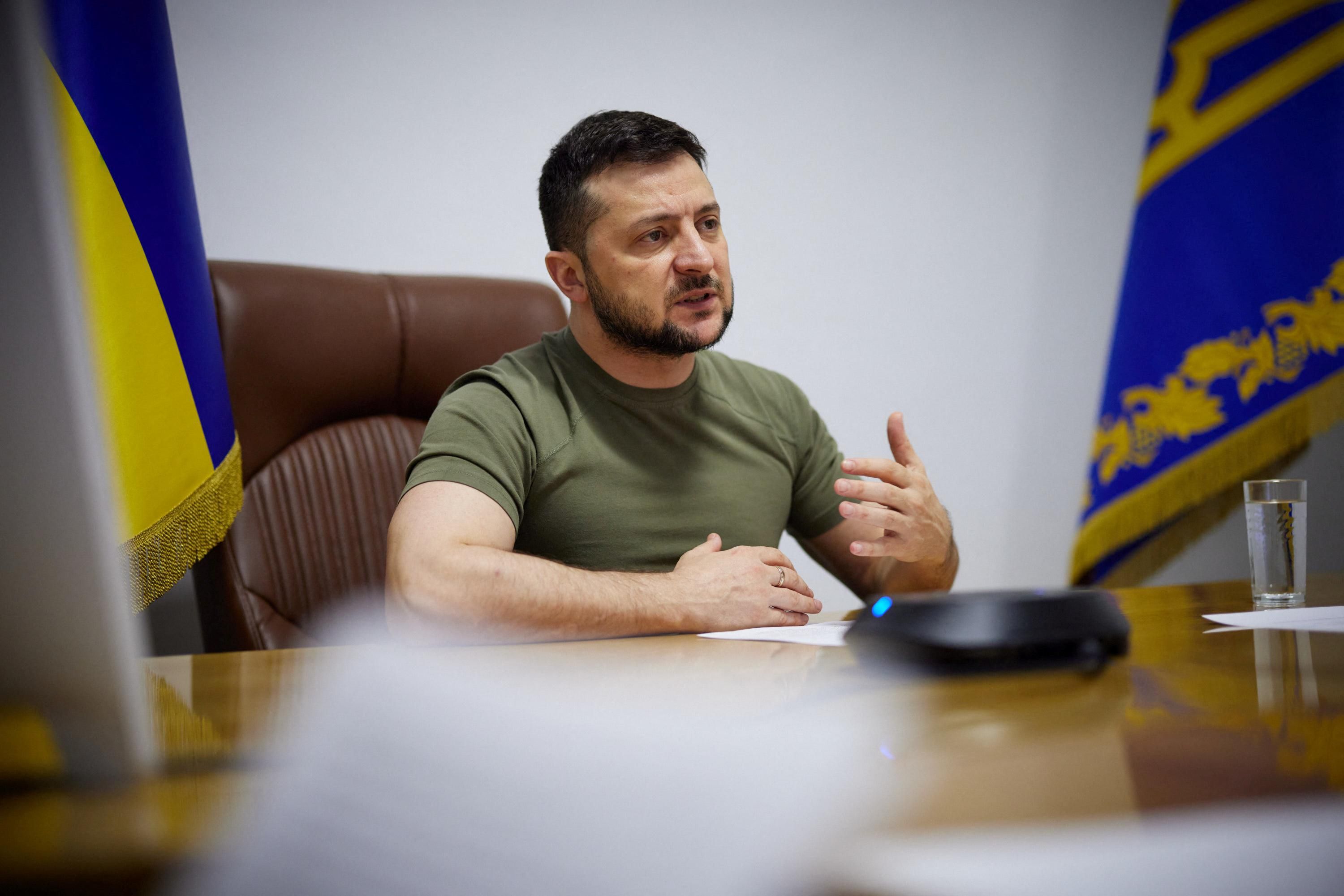Zelensky’s peace offer is a first step, not a game changer
Ukraine’s President Volodymyr Zelensky says he’s ready to discuss “neutrality” for Ukraine as part of a peace deal with Russia. That’s a positive development. But even as an opening bid, this is no game changer. Here’s why…
First, Zelensky insists that “neutrality” – a promise written into Ukraine’s constitution to never join NATO – can only be approved by popular referendum. That vote, Zelensky says, can’t take place while Russian soldiers remain on Ukrainian soil. Leaving aside disputes over what counts as Ukrainian soil – Crimea? The occupied Donbas region? – Putin is highly unlikely to withdraw all Russian forces without knowing the outcome of the vote.
Second, Zelensky also insists that Ukraine could only agree to neutrality if its security is guaranteed by outside (read Western) powers. Without those security guarantees, Ukraine can’t be confident that Russia won’t just invade again in the future. But a security guarantee from Western powers is the central benefit of NATO membership, and Putin has little reason to agree to that.
Third, an offer not to join NATO in exchange for peace assumes that Putin will allow Ukraine to one day join the European Union and that Ukrainians will retain the right to make their own foreign and trade policy. Putin’s approach toward Ukraine over the past 20 years indicates that would not be acceptable to Moscow.
The Wall Street Journal reported on Monday there may be another obstacle to successful peace talks: Russian oligarch Roman Abramovich has said that he and Ukrainian negotiators suffered symptoms of poisoning after they met in Kyiv to discuss peace recently. Abramovich blames hardliners in Moscow who don’t want to end the war.
Finally, President Joe Biden’s comment in Poland that Putin “cannot remain in power” could persuade Russia’s president that no guarantee of neutrality from Ukraine can allow Moscow to claim victory. Not if the US still intends to cripple Russia’s economy with sanctions – and maybe force Putin out.
Zelensky’s offer might start an important conversation, but it comes nowhere near ensuring a diplomatic breakthrough.
A groundbreaking summit in the desert
This week, Israel is hosting foreign ministers from four Arab countries – Bahrain, the United Arab Emirates, Morocco, and Egypt – as well as US Secretary of State Antony Blinken for a summit focused on countering regional security threats and boosting economic cooperation. The summit, held in Sde Boker, a kibbutz in the Negev desert, is the first of its kind to take place on Israeli soil and comes after Morocco, the UAE, and Bahrain signed the Trump-brokered Abraham Accords in 2020, normalizing relations with Israel. The group, united by concern about Tehran, reiterated its opposition to the Iran nuclear deal currently being negotiated. Meanwhile, Yair Lapid, Israel’s foreign minister, said the desert gathering aimed to establish “a new regional architecture,” and later said that the summit would become a permanent fixture, highlighting that the normalization pact was not simply symbolic. In a sign of the changing regional dynamics, UAE’s chief diplomat Abdullah bin Zayed al Nahyan opened his remarks by condemning two recent terror attacks in Israel that killed six people. However, the Ramallah-based Palestinian Authority was excluded from the summit and criticized the Arab states for turning their backs on the plight of the Palestinians.
Emergency in El Salvador
Following approval by the Salvadoran congress, President Nayib Bukeledeclared a state of emergency in response to a wave of gang violence that left scores dead in just two days. The small Central American state has long been plagued by powerful narcotrafficking groups, and it routinely suffers some of the highest per capita murder rates of any country in the world. The move suspends freedom of assembly and makes it easier for the police to conduct arrests and eavesdrop on suspects. The 40-year-old Bukele, a charismatic and popular political outsider with a down-to-earth style, swept to power in 2019 with a promise to rein in violence. During his first few years, he had some success, particularly during the pandemic – US authorities believe Bukele may even have negotiated a truce directly with gang leaders. But the recent surge in homicides threatens to undo all of that. Declaring a state of emergency may also raise concerns among democracy activists who see an authoritarian streak in Bukele. In 2020, he sent soldiers into the Congress to pressure lawmakers into giving him more money for, of all things, his fight against gang violence.
More For You
With close ties to both the US and China, can Singapore survive in an increasingly fragmented and chaotic world? Singapore’s President Tharman Shanmugaratnam joins Ian Bremmer on the GZERO World Podcast.
Most Popular
Think you know what's going on around the world? Here's your chance to prove it.
This week, Prime Minister Keir Starmer became the first UK leader to visit China in eight years. His goal was clear: build closer trade ties with Beijing.
